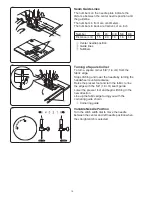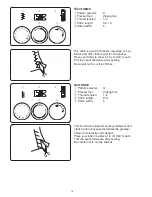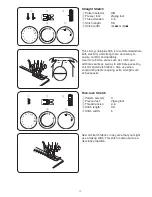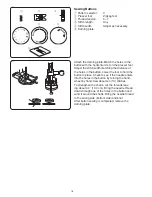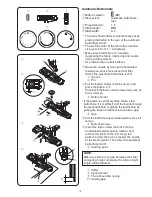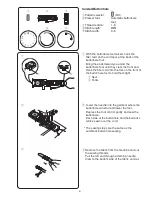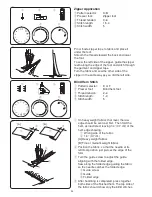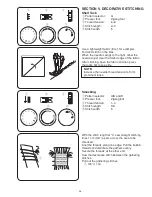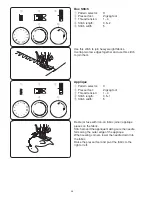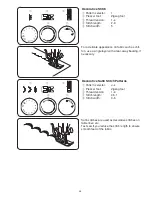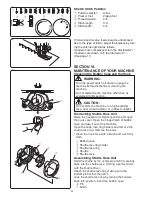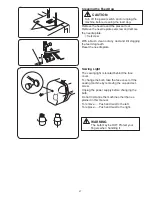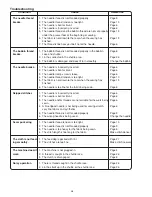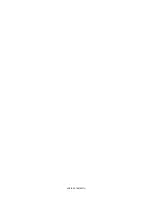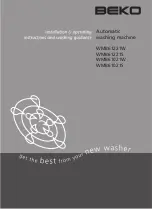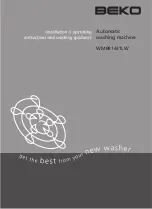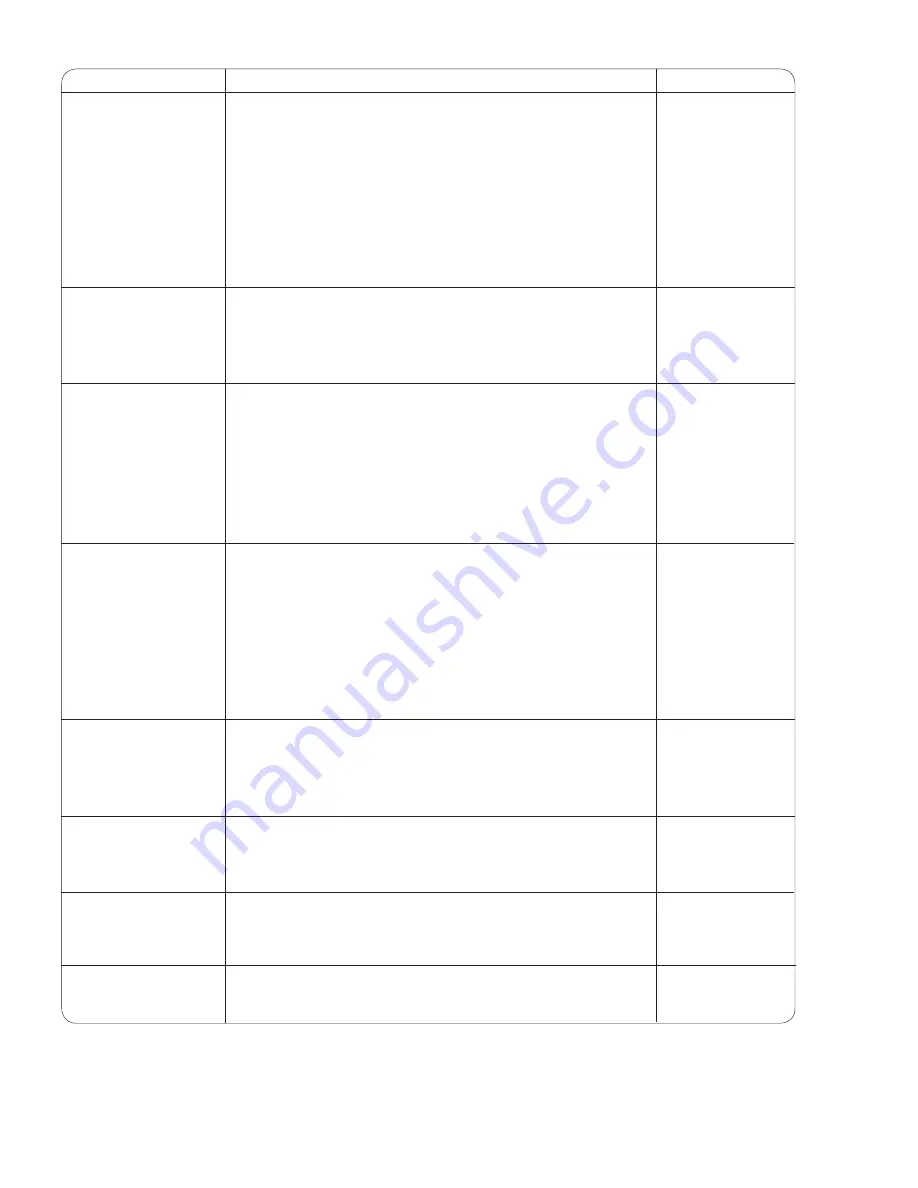
28
Troubleshooting
Condition
Cause
Reference
The needle thread
breaks.
The bobbin thread
breaks.
The needle breaks.
Skipped stitches
Seam puckering
The cloth is not feed-
ing smoothly.
The machine doesn’t
work.
Noisy operation
1. The needle thread is not threaded properly.
2. The needle thread tension is too tight.
3. The needle is bent or blunt.
4. The needle is incorrectly inserted.
5. The needle thread and the bobbin thread are not set properly
under the presser foot at the beginning of sewing.
6. The fabric is not drawn to the rear when the sewing has
finished.
7. The thread is too heavy or too fine for the needle.
1. The bobbin thread is not threaded properly in the bobbin
case and shuttle.
2. Lint has collected in the shuttle area.
3. The bobbin is damaged and doesn't turn smoothly.
1. The needle is incorrectly inserted.
2. The needle is bent or blunt.
3. The needle clamp screw is loose.
4. The needle thread tension is too tight.
5. The fabric is not drawn to the rear when the sewing has
finished.
6. The needle is too fine for the fabric being sewn.
1. The needle is incorrectly inserted.
2. The needle is bent or blunt.
3. The needle and/or threads are not suitable for the work being
sewn.
4. A blue tipped needle is not being used for sewing stretch,
very fine fabrics and synthetics.
5. The needle thread is not threaded properly.
6. The wrong needle is being used.
1. The needle thread tension is too tight.
2. The needle thread is not threaded properly.
3. The needle is too heavy for the fabric being sewn.
4. The stitch length is too long for the fabric.
1. The feed dog is packed with lint.
2. The stitches are too fine.
1. The machine is not plugged in.
2. A thread is caught in the shuttle race.
3. The clutch is disengaged.
1. There is thread caught in the shuttle race.
2. Lint has built up in the shuttle or the shuttle race.
Page 9
Page 10
Page 6
Page 6
Page 13
Page 13
Page 6
Page 8
Page 26
Change the bobbin
Page 6
Page 6
Page 6
Page 10
Page 13
Page 6
Page 6
Page 6
Page 6
Page 6
Page 9
Change the needle
Page 10
Page 9
Page 6
Make stitch denser
Page 27
Make stitch coarser
Page 4
Page 26
Page 8
Page 26
Page 26

